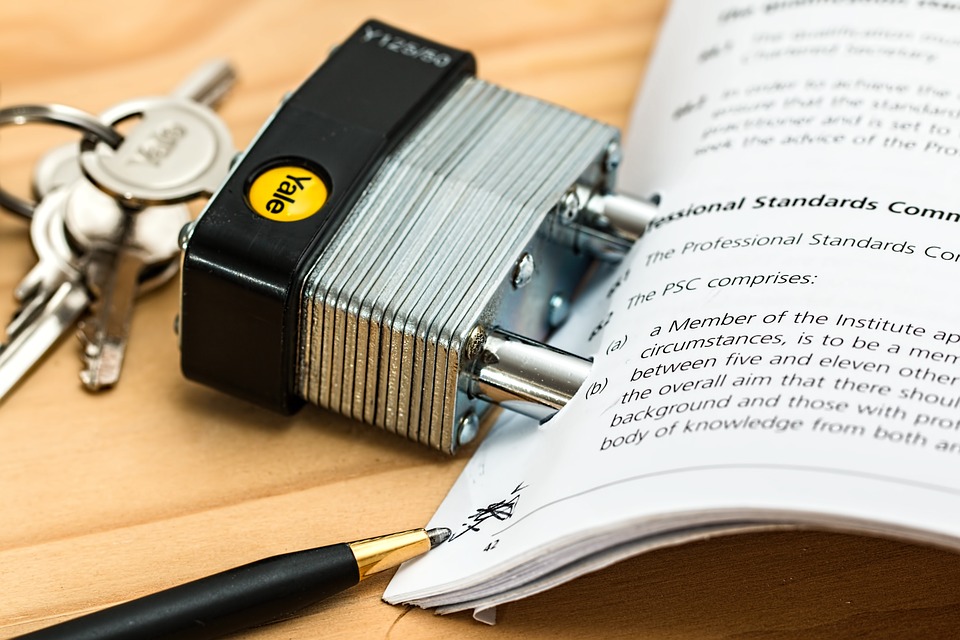19+ Franchise Asset Purchase Agreement Examples to Download
What do many stores and restaurants that we see along the road have in common today? McDonald’s, Subway, 7-Eleven, Pizza Hut, Ace Hardware, iStore have one thing in common—they are franchises. Having or owning a franchise allows you to market products that virtually sell themselves. Why? They do so mainly because most of them are owned by national or multinational companies who spend tons of money on advertising their franchises.
Stripped to its very core, franchising is probably closest to renting a business than owning one. Opening a franchise business gives you rights to a time-proven business system. They have established for you the pricing, products, and marketing techniques. Additionally, you are granted access to the company’s logos, signage, materials and all other things related to the company brand. You essentially represent the company—for a decided duration of time, as provided for by an agreement.
But what happens if you decide one day to rid yourself of the business and venture somewhere else? Most franchise business owners sell the franchise, including all the assets involved. Herein comes the role of the franchise asset purchase agreement.

What Is a Franchise?
Before we delve into what a franchise asset purchase agreement is, let us define what a franchise is.
A franchise is a business owned and operated by individuals (referred as the franchisee) but branded and overseen by a much larger company (franchisor). It allows the franchisee to run and operate a business for the franchisor in return for a fee and a share of the income made. All of which are stipulated and stated on a franchise agreement.
What Is a Franchise Agreement?
Franchise agreements involve an agreement between a franchisor and franchisee. The franchisor, commonly a national or multinational company, is the real owner of the entire business to be exact. The franchisee buys the rights to open a franchise which is the same as buying the rights to use their brand, products, and business operating systems. The franchisor owns all the rights and liabilities in connection with the business and the agreement stipulates the term upon which your franchise starts and ends which is subject to your rights to renewal.
What Are the Most Common Covenants in a Typical Franchise Agreement?

Every franchise agreement is different as every business is different in terms of how they operate. However, the following are the common stipulations that are contained in a franchise agreement.
1. Granting of Franchise
The award or grant sets forth with the franchisor granting limited, non-transferrable, non-exclusive rights to use the franchisor’s trademark, logos, marks, and system of operatisetor a given period of time as defined by the agreement. The franchisee has no ownership rights to the marks or system of the franchisor and the franchisor reserves the right to terminate the licensee’s grant of license upon any breach of the franchise agreement.
2. Territory Rights, Opening Date, and Work Schedules

Describes the franchisee’s territory and work schedule where franchisee is to find a location for the franchise, approved unit plans, build-out and opening. This also includes the equipment needed to operate the business.
3. Term and Renewal
This condition sets forth the term or duration of time of the franchise agreement from the date when the franchise agreement was signed to the date when the franchise agreement expires. Prerequisites of the franchise agreement will also be described in this condition if any renewal rights for the franchise is granted.
4. Fees and Necessary Purchases
Fees including the initial franchise fee, any fees paid to the franchisor before the opening, any fees paid to the franchisor during the term of the franchise, all advertising fee obligations, and other such fees will be disclosed in this section of the agreement which may be more particularly described in other sections of the agreement.
5. Franchisor’s Service Offerings
The pre-opening and post opening services offered by the franchisor is stated and stipulated not to be repeated in the franchise disclosure documents as well as in the actual franchise agreement to remove the threat of litigation to insert any rights into the contract not otherwise stated.
6. Agreed Advertising Obligations

The franchisor reaffirms the franchisee’s advertising obligations as stated in the default, damages, and complaint limitations section of the franchise agreement and all the fees identified as applicable.
7. Training Offer
Training offered by the franchisor which includes but not limited to any additional training, seminars, meetings and such that are requirements set out by the franchisor will be described in this section of the franchise agreement.
8. Proprietary Information and Intellectual Property Rights
The franchisor clearly reiterates that the grant is a temporary license to the franchisee. Each item considered to be proprietary is described and others such as confidential and trade-secret information shall be regarded as proprietary and limitations for the franchisee’s right to use such information will be stated. This section gives light to such rights and more importantly provides protection for the franchisor.
9. Quality Control of Franchisee Deliverables

Requirements regarding to quality control shall be described and necessary to ensure that the goods and services offered by the franchisee throughout its operation will meet the franchisor’s minimum requirements. This section contains the franchisor’s specific quality control requirements that must be met in order for the franchise to be continually granted or honored.
10. Transfer Rights
This section describes and lists all prerequisites for a franchisee to have the right to transfer their interests in the franchise and of the franchise agreement.
11. Defaults and Damages
This section discusses instances for considered violations of the franchise agreement. Violations are stipulated into particular breaches that may result in the immediate termination of the franchise agreement. Provisions are given also to which violations will end in the termination of the franchise agreement and to which violation may pose cure or remedy.
12. Termination (or Expiration) of Agreement

In the event where the franchise relationship is to end either with the cause of natural end of the franchise period and no renewal being sought after, or in the case of termination of the agreement, a list of steps is to be provided in order to re assess the franchisee’s relationship with the franchise system.
13. Franchisor’s Right of First Refusal
First right refusal is usually given to most franchisors in purchasing the franchisee’s business in the event that the franchisee wants to transfer the business or the first right to purchase the franchisee’s assets during the time of expiration or termination of the franchise agreement.
14. Relationship Considerations

This section states that franchisees are deemed as independent contractors of the franchisor and considered not to be employed by the licensor. The franchisee therefore is not responsible for taxes, employees and operate independently from the licensor while executing the contract or agreement.
15. Indemnification
Any losses that the franchisor suffers resulting from a negligent act, intentional, or non-intentional wrong doing of the franchisee will be reimbursed by the franchisee as stated in this provision or section. This section mostly is again geared for the protection of the franchisor, since it is not the responsibility of the franchisor for the franchisee’s actions in its daily operation and maintenance of the business.
16. Non-Compete Clauses
As with most clauses in a business relationship, this section is intended to prevent any franchisee from opening a business that would directly compete with the franchised business.
This provision is further divided into duration where the franchisee is explicitly disallowed non-compete and after the end of the franchise agreement in which there usually is a duration of time a franchisee is bound to such a clause and is further discussed on other sections of the franchise agreement. Typically, a franchise is bound by its territory or the geographical area that the business covers and after the end of such a franchise agreement.
17. Mediation, Arbitration, and Resolution of Disputes

This section describes the ways the franchisor resolves disputes with the franchises including mediation and arbitration requirements.
18. Insurance
Franchisees are required to have insurance covering the business operations and in most cases require the franchisor as well to be named as additional insured which makes the franchisor recipient to the same insurance coverage as the licensee.
19. Other Provisions
Where all other conditions are not applicable, this section covers the rest. Typical examples contain or cover mergers, modifications to the agreement, state specific provisions and more.
About Asset Purchase Agreements

Now that we have delved into what goes into franchise agreements, let us discuss further what happens when a franchisee decides to sell his franchised business.
Typically, when you have a franchised business, your assets comprise your business. This includes all furniture, equipment, and other goods you use to operate the business. When you try to sell the franchised business to a third party, you need to obtain approval from the franchisor owing to the provision stated above of first refusal. This method of selling to a third party is executed through an asset purchase agreement.
In such a business agreement, the third party is only buying the assets and the right to operate the business—not the liabilities. Only upon the assumption of the franchise agreement will make the third party liable.
Again, there is no definite form for the asset purchase agreement, but it has the following common elements that make up the purchase agreement.
1. Opening
The opening usually declares the names of the parties involved with the purchase agreement where the seller is the franchisee and the buyer is the third party.
2. Recitals
This section of the agreement is often not considered as part of the binding provisions of the agreement and merely states the position of each party to the transaction. Pertaining to the franchise business, this section clearly acknowledges that the seller is the franchisee of such a franchise system.
3. Assets

Everything included in the sale is described in this section of the purchase agreement from the hard assets to other soft assets owned by the franchisor such as your limited rights to the franchise agreement between franchisee and franchisor that allows you to use or access the franchisor marks and intellectual property. This does not in any way make the third party owner of such since franchisee is not transferring any ownership rights but only access or use.
4. Liens and Encumbrances
Assets subjected to purchase agreements sometimes were obtained via a business loan proposal by the franchisee. If this is the case, the seller or franchisee should pay the loan off otherwise the buyer in effect assumes the loan.
5. Contracts Assuming the Business

Initially, the franchisee signs different contracts to start up or operate the business. This requirement goes as well for the buyer who will be assuming the business. Other contracts that are not vital to the franchise are left to the discretion of both parties to reach an agreement.
6. Real Estate Lease Statement
The agreement stipulates on how the real estate lease would be taken cared of. Lease agreements that are incorporated into franchise agreements will be assumed as well for the third party assuming the business. If these are not included in the franchise agreement then the third party business will have to negotiate on the terms of the lease with the owner of the real estate.
7. Price of Sale

The asset purchase agreement shall declare the price and the accompanying terms of payment of the sale. This is to be accomplished as a requirement upon closing such an agreement.
8. Bill of Sale
This provision transfers all assets included via a bill of sale. The provision names that requirement and is attached further as an exhibit to the purchase agreement.
9. Proof of Earnest Intent
This provision requires the buyer to pay the seller a percentage of the total sale or purchase price during the signing of the agreement as proof of good faith and the serious intent for the buyer to close the deal.
10. Prepaid Operational Expenses

Most franchisee’s prepay for expenses in relation to operations of the business such as utilities and rent. Prepaid expenses often cover the time nearing the closing of the purchase. The purchase price can then be adjusted to account for that period and when the agreement or deal was closed.
11. Inventory
For most cases like prepaid expenses, there will always be business inventory before and after the purchase agreement is closed. Both the seller and the buyer usually agree in taking inventory the day before closing the deal and that the buyer can increase the price by the seller’s cost for all inventory that can still be used.
12. Representations and Warranties
The seller shall make statements of representations and warranties in the contract to assure the buyer of the seller’s ability to closing or finalizing the deal. In the same way, the buyer presents statements in the contract assuring the seller of the ability in selling the franchise and closing the deal.
13. Conditions to Buyer’s Obligation to Close
This provision reiterates the additional conditions set that must be satisfied before the buyer becomes obligated to close the deal.
14. Continuation of Business
The seller is to continue operating the business as if there was no asset purchase agreement to provide an opportunity for the buyer in taking over a business that is making profit or money before the sale was even thought about.

15. Allocation
The matter of the sale must be reported to the IRS or state by the seller and the buyer involved in such franchise asset purchase agreement. Tax allocation for each asset can be different for which reason allocation is to be negotiated and made into writing.
16. Indemnification
As with the franchise agreement, this provision states that both buyer and seller shall be held responsible and reimburse losses incurred from either’s negligent act or wrong doing relating to the terms of the purchase agreement.
17. Carry-back
Usually, the entirety of the purchase price cannot be paid off by the buyer. Like net operating losses in accounting is being applied to a preceding year’s income to reduce liabilities, a seller will agree to carry back the balance of the remaining price for the sale via a promissory note or credit note to be apportioned over an agreed upon duration of time and n number of payments.
18. Closing
This provision names the date, time, and place of the closing and will repeat each of the party’s obligations at the time of closing.
19. Default
Rights will be defined by the buyer and seller upon the event where either of the parties breach the agreement before closing.
20. Additional Conditions
Any additional provisions not mentioned and worth naming would be enclosed in this section of the agreement.

In a nutshell, a franchise asset purchase agreement provides legal basis for the transfer and sale of an assets of a business—in this case, a franchise business.
The relationship that exists between a franchise and a franchisor is that of a long one, commonly about 10 to 20 years. In which case, the buyer of a franchise business should always review the franchise agreement before assuming the franchised business. It is also crucial to get consent from the franchisor before selling your franchise business to avoid provisions stated above getting to your disadvantage.
There are possibly a number of reasons why buying an existing franchise business is advantageous as to buying a new startup franchise from a franchisor. For one, locating a good or desirable established location is hard to do. Another would be in purchasing a franchise business already with a good existing operating history. And lastly would be that assuming an old franchise commercial agreement may be advantageous in terms of the conditions stipulated in the agreement.
So there, the choice is always in your hands. So whether you plan on taking the straight-out, brand-spanking-new franchise agreement or a franchise asset purchase agreement, take time to review and rethink which agreement would suit you best.

